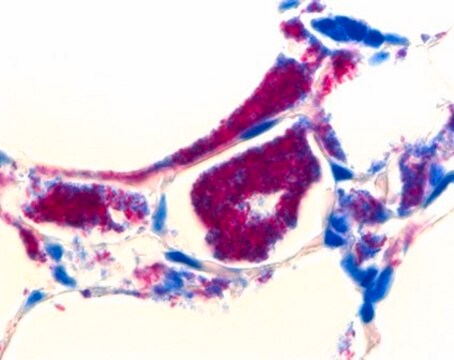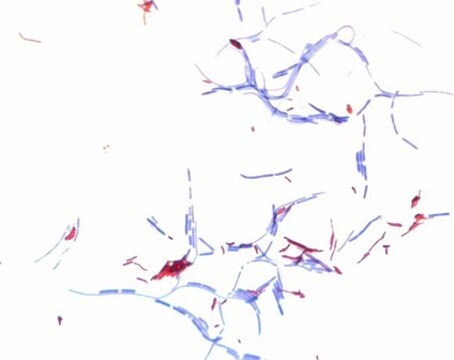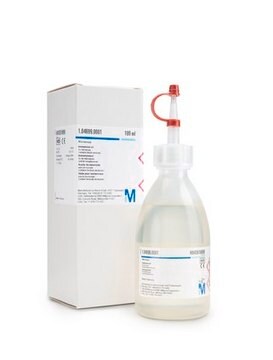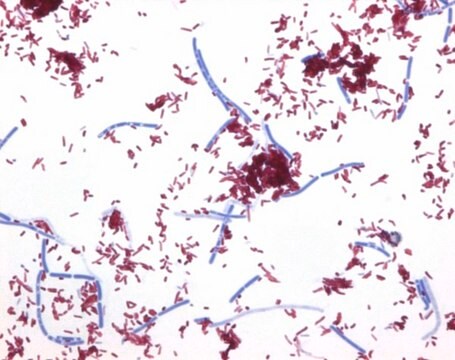1.00327
Hydrogen chloride solution
in ethanol, for microscopy
Synonym(s):
Hydrogen chloride – ethanol solution, Hydrogen chloride solution, Hydrochloric acid in ethanol
About This Item
Recommended Products
product name
Hydrogen chloride solution, in ethanol, for microscopy
Quality Level
form
liquid
IVD
for in vitro diagnostic use
technique(s)
microbe id | staining: suitable
pH
1.0 (20 °C in H2O)
transition temp
flash point 21 °C
density
0.90 g/cm3 at 20 °C
application(s)
clinical testing
diagnostic assay manufacturing
hematology
histology
storage temp.
2-30°C
SMILES string
Cl
InChI
1S/ClH/h1H
InChI key
VEXZGXHMUGYJMC-UHFFFAOYSA-N
Looking for similar products? Visit Product Comparison Guide
General description
Pretreatment of the specimens with Sputofluol™ dissolves the bacteria from the surrounding viscid sputum and cell material. It is an IVD and CE registered product and can be applied for diagnostical purposes. For more details, please see instructions for use (IFU). The IFU can be downloaded from this webpage.
Application
Legal Information
Signal Word
Danger
Hazard Statements
Precautionary Statements
Hazard Classifications
Eye Irrit. 2 - Flam. Liq. 2 - Met. Corr. 1
Storage Class Code
3 - Flammable liquids
WGK
WGK 1
Flash Point(F)
69.8 °F
Flash Point(C)
21 °C
Regulatory Listings
Regulatory Listings are mainly provided for chemical products. Only limited information can be provided here for non-chemical products. No entry means none of the components are listed. It is the user’s obligation to ensure the safe and legal use of the product.
FSL
Flammable liquids
Alcohols
Hazardous rank II
ISHL Indicated Name
Substances Subject to be Indicated Names
ISHL Notified Names
Substances Subject to be Notified Names
Certificates of Analysis (COA)
Search for Certificates of Analysis (COA) by entering the products Lot/Batch Number. Lot and Batch Numbers can be found on a product’s label following the words ‘Lot’ or ‘Batch’.
Already Own This Product?
Find documentation for the products that you have recently purchased in the Document Library.
Customers Also Viewed
Related Content
An overview of the science and practice of bacteriology in clinical diagnostics. Learn more about the application of standard and special stains for microscopic analysis.
Our team of scientists has experience in all areas of research including Life Science, Material Science, Chemical Synthesis, Chromatography, Analytical and many others.
Contact Technical Service







